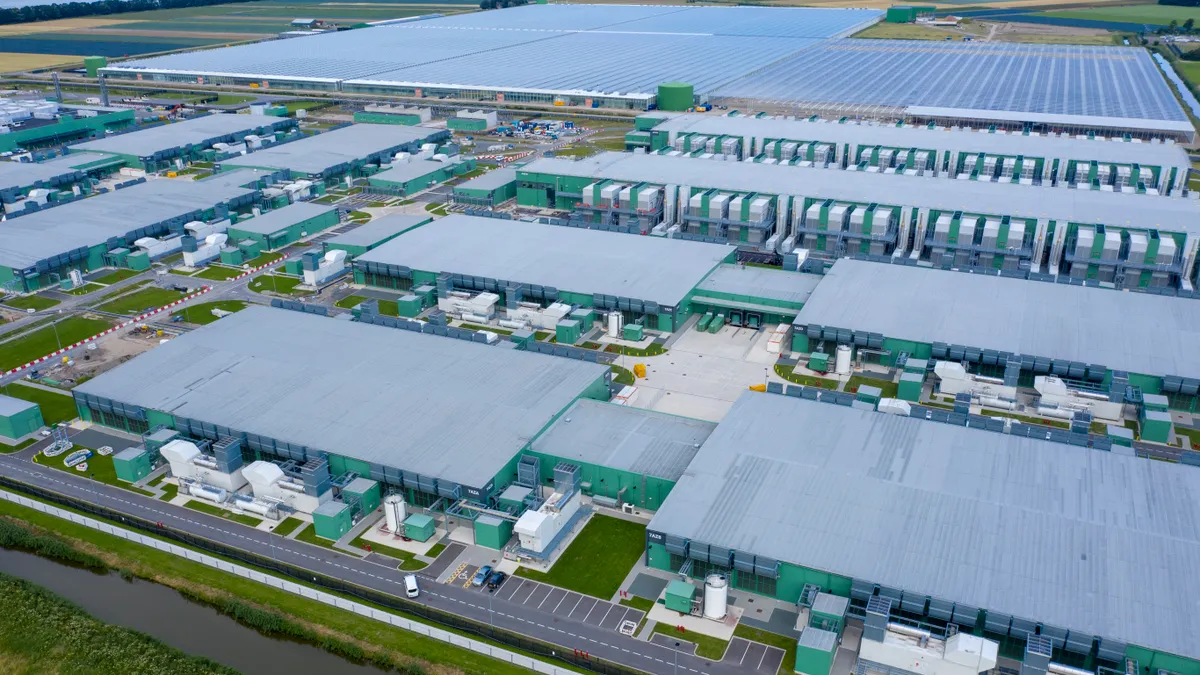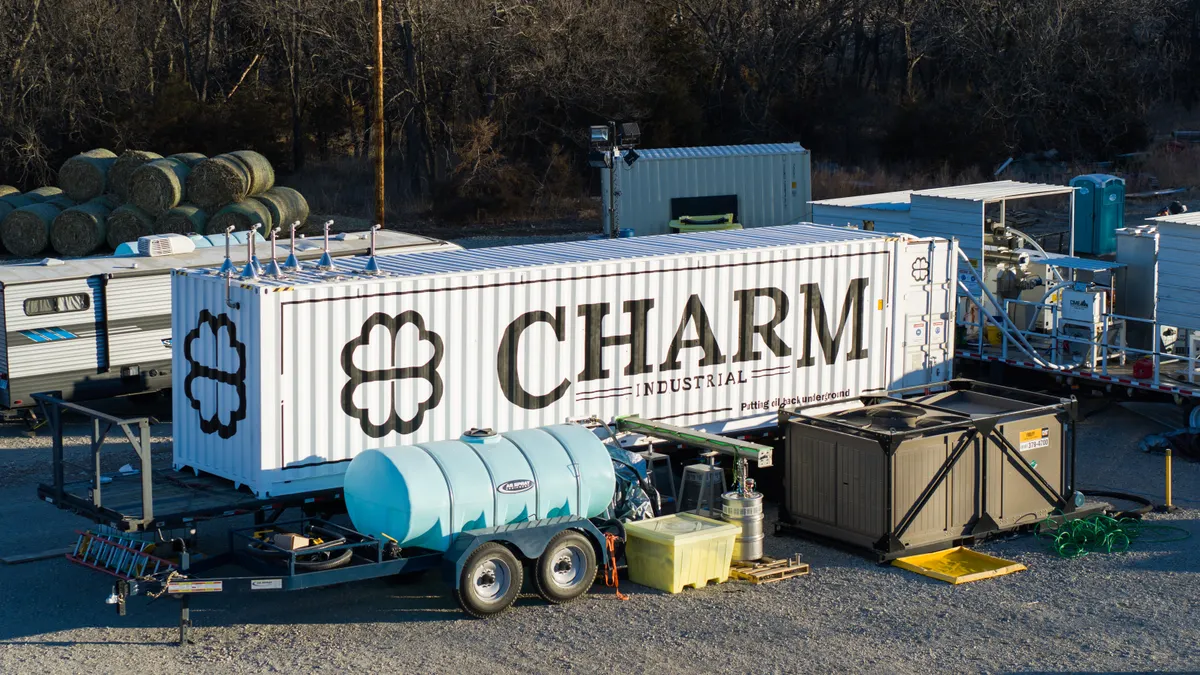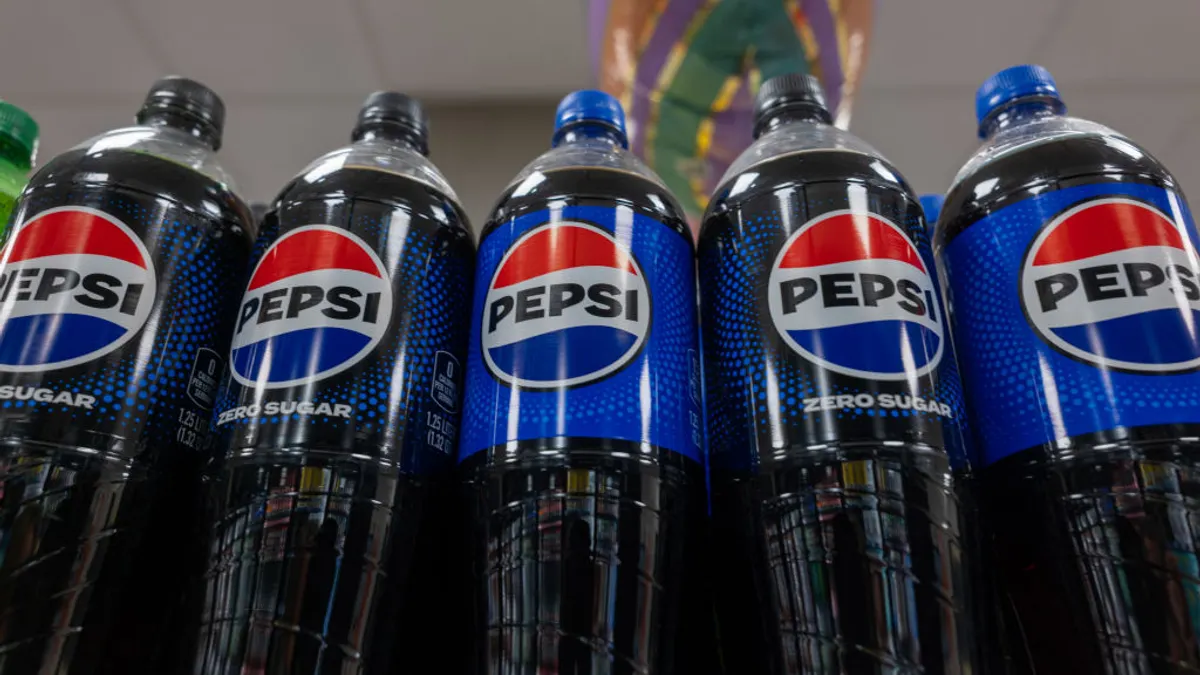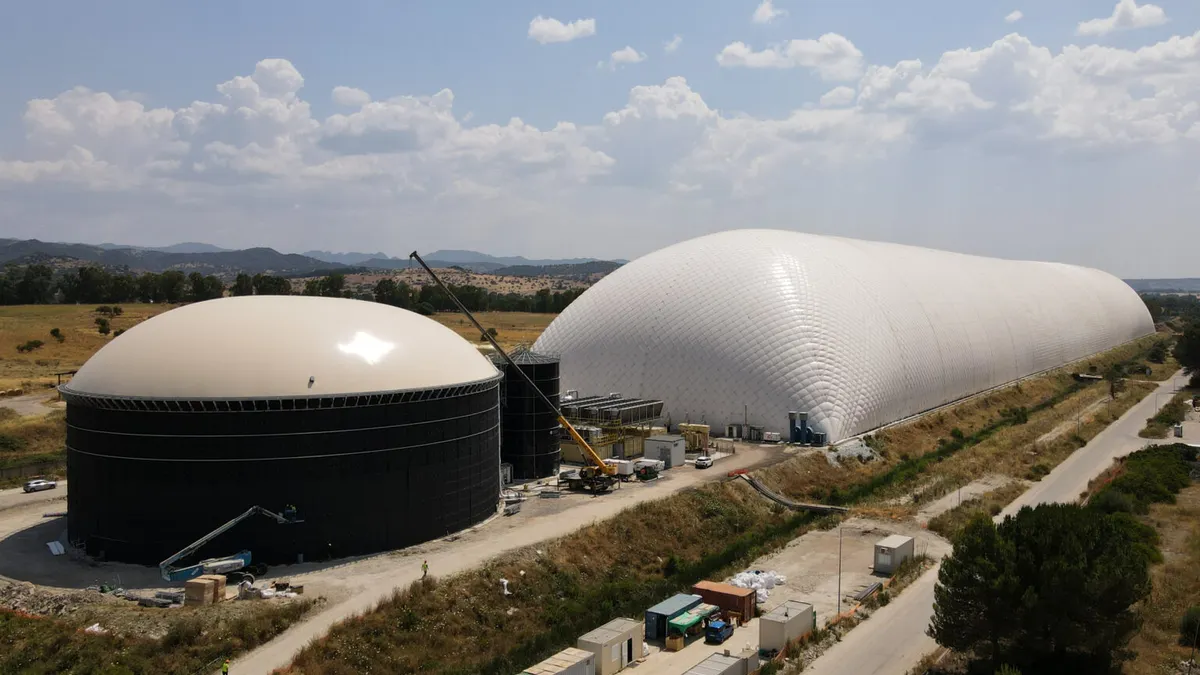As U.S. automakers retreat on electrification goals, and legacy automakers in Europe are increasingly looking like they will get a delay on an internal-combustion-engine ban, one could presume suppliers also are curbing an eco-friendly outlook.
But that isn’t the case at driveline specialist GKN Automotive says a top official, who notes the company isn’t slowing its sustainability goals, namely because its customers still have overarching commitments to get to net-zero.
“The long-term ambitions, the long-term trajectory is still there,” Tom Salisbury, director of sustainability at GKN Automotive, tells ESG Dive sister publication WardsAuto in a recent interview of the outlook of the automakers his company serves. The U.K.-based supplier says its products are in half the vehicles on the road globally.
GKN’s automotive customers continue to have expectations that place an onus on the company to reduce its operational carbon footprint, Salisbury says. The automakers it serves also are increasingly asking for product-carbon-footprinting – the act of measuring a product’s greenhouse gas emissions throughout its lifecycle – to be a part of request for quotations, with that information set to inform manufacturing commercial decision making in the future, he says.
And a focus on sustainability is not only present among GKN’s European and American automaker customers. Even among its Chinese automaker customers, Salisbury points out GKN is starting to see requirements for renewable electricity in component production be stipulated in contracts.
“I was with (GKN’s joint-venture SDS team in China) last year and they were talking to me in a similar way (as do European automakers),” he says. “Again, might not be quite the same as Europe (as in) the detail might not there…but certainly the requirement was growing from a number of the Chinese customers in terms of what our business is doing on carbon reduction.”
Meanwhile, GKN continues to require its own suppliers to pursue more sustainable practices. By 2030, GKN has a goal for 95% of its spending be with companies with a self-assessment questionnaire rating of C or better, for it to gauge their adherence to environmental, social and governance principles.
“We recently announced having suppliers with science-based carbon reduction targets and also targets more focused around electric arc steel, because (traditional blast-furnace steel production is) kind of the biggest area – when it comes to supply chain – of carbon impact,” says Salisbury.
While relaxed or removed regulations in the U.S. allow automakers here to dial back ambitions to produce more vehicles with reduced or zero emissions, he says he hasn’t noticed GKN’s American parts suppliers retreating significantly on sustainability.
GKN’s own sustainability goals, including a target to achieve 50% renewable electricity across its manufacturing facilities in 2025, is still standing and Salisbury is confident it will be met, particularly in Europe where the company has had a sharp focus on renewable energy. It signed its first virtual power purchase agreement, coming online this year, with Recurrent Energy in 2024. The 10-year VPPA will cover 65% of GKN’s European electricity load and the deal with Recurrent includes drawing energy from a solar farm in Spain.
Other goals are longer term, with due dates of 2030, but for one of them – 100% waste diversion from landfills, GKN is already at 97%, Salisbury says.
“When you get to that level, it’s really understanding what are the last steps that need to be taken across some of our sites? In some cases, that’s actually looking for new suppliers who can support on waste streams where there’s not necessarily recycling infrastructure.”
Despite a belief eco-friendly business operation adds cost, he notes sustainability often is the right move financially.
GKN’s largest waste stream, scrap metal, has a cost associated with increased use of metal – “the more waste you’re creating the more material you’re using,” Salisbury notes – so it has been a focus area to minimize excess to “become more efficient in our operations.
“I would challenge the premise that (using sustainable practices) makes (the cost of doing business) more expensive,” he says when asked if tariffs could back-burner sustainable practices as suppliers and automakers grapple with the levies.
He advises that in this “tight and pressured” timeline for automotive companies, there is a need to be even more disciplined, and articulate and demonstrate the value of sustainability.
“I think everything that we need to do from an environmental and social perspective, there has to be a business value, and there is,” Salisbury says.



















